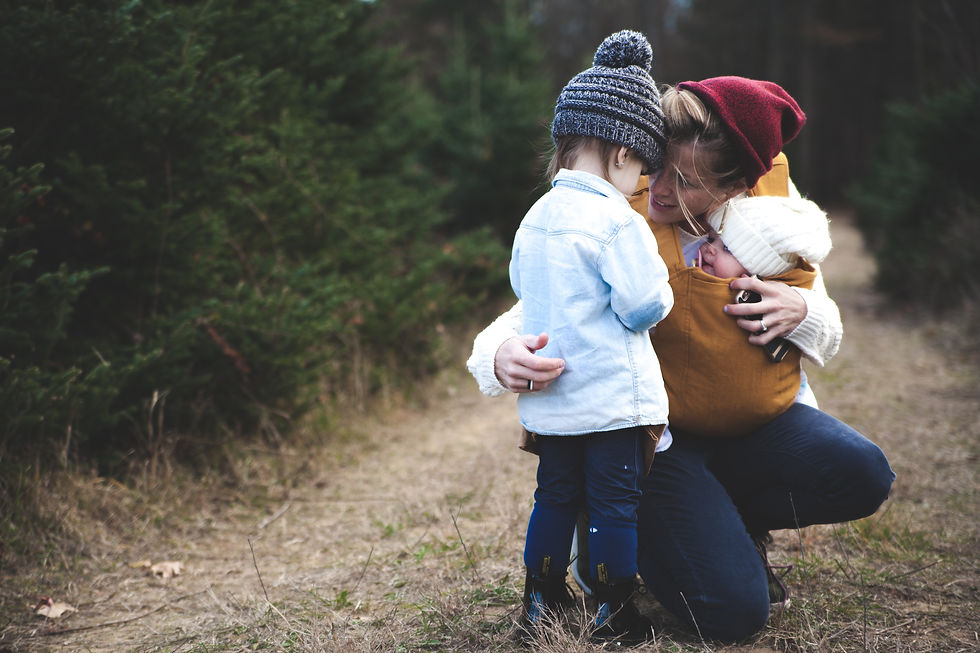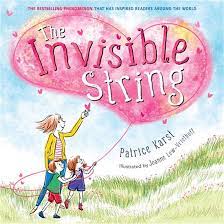
You are a parent before you are a cancer patient.
Explaining the changes, challenges and realities of your diagnosis to your child(ren) and supporting them through it can be daunting and difficult. We have some tips and resources to make it easier...
Telling your child(ren)
It is your choice if you decide to tell your children about your cancer diagnosis and treatment or not. This can be a difficult and sometimes distressing experience. Some families prefer not to include the children, while some families find that honesty and openness can be hugely beneficial.
Make sure you set aside time to tell them, without expectations to go anywhere, or do anything demanding before or after. Leave enough time to allow for questions and big emotions to be expressed.
Choose a place where you all feel comfortable and where it is safe for big feelings to be expressed.
Use language that is appropriate and accurate (some of the books and resources below can help with this).
Don't be surprised if they do not react as you expected. Some children will need time to process what they have been told and their questions or emotional response may come later (even days or weeks later!).
Let them know they can ask questions and let them know who they can go to. You might encourage them to come directly to you, or to a trusted adult, such as a grandparent or teacher, if they prefer.
It may be helpful to inform their nursery or school, in case they exhibit any changes in mood or behaviour. This will allow the staff to adjust their provision to best support your child(ren).
Consider using books, videos and other resources to support understanding. These should be age appropriate, and will ideally align with what you have already told them. We have a few suggestions to get you started...
Suggested Resources - Online

Parenting with Cancer- This website offers support, guidance, tips and advice to help you to both talk to your children about cancer and help manage any behavioural changes that they might develop in response. They also offer parenting workshops and coaching sessions.

The Fruitfly Collective is an incredible organisation that host a variety of resources specifically to support children who have a parent diagnosed with cancer.
Their award-winning Cancer Cloud Kits provide "tools to help improve communication within the family, practical tools to help manage changes in the family’s routine, and tools that explore the emotional impact a cancer diagnosis brings." They are available for all ages, from 3 - 14yrs.
They also have a comprehensive library of articles and videos that go into more detail about talking to and supporting your child(ren) when you have cancer.
Suggested Resources - Books
Children under 6
The Invisible String by Patrice Karst
The Invisible String is the perfect tool for coping with all kinds of separation anxiety, loss, and grief. In this relatable and reassuring contemporary classic, a mother tells her two children that they're all connected by an invisible string.
Only One Of Me by Lisa Wells
The Only One of Me project grew from Lisa's determination to leave a lasting legacy for her daughters and her desire to help other families rally against the difficulties of loss.
Mummy Goes To Hospital by Lynsey Gregory
Written by one of our own Star Mums, Mummy Goes To Hospital is a beautifully illustrated story of how life changes for 3 year old Theo and his baby sister Tillie when their mum is diagnosed with cancer. In simple language it explains how mum's energy levels can change, how their daily routine both changes and stays the same, and some of the tactics Lynsey used to stay connected to her children during treatment.
You can request a copy of this book free of charge from your Information & Support Worker, or they can be purchased from the Star Store.
Children 6-10
The Secret C by Julie Stokes
The Secret C: Straight Talking About Cancer aims to support families talking about cancer. It uses illustrations and straightforward language to give a basic explanation of what cancer is, the treatments involved, and how it might affect the person living with cancer. Feelings are also addressed and reassured. The book also reinforces the importance of trying to keep as close to the usual family routines as possible and still being able to laugh and have fun.
A Huge Bag of Worries by Virginia Ironside
This book tells the story of Jenny whose worries follow her wherever she goes until she decides she has to get rid of them. Beautifully illustrated, this book encourages children to open up about their fears and anxieties to help them manage their feelings.
Age 10 upwards
This book help by explaining what worry is, offering creative ways for older children to calm and distract themselves when worry strikes.
B is for Breast Cancer: 4 (Meet Lucy and Jack and Friends) written by Dr Simon and Anita Howell, and illustrated by Sue Roche
This reassuring and loving book written from personal experience, involves children in the treatment plans and medical vocabulary of the new world the family has entered. Written by a nurse and doctor in order to help explain to their own children, this book will help families talk about some of the issues around primary breast cancer and its treatments.
Some of these titles can be accessed, free of charge, through your Information and Support Worker.
External Support
It is possible that your child could benefit from external emotional support such as counselling, art/creative therapy, play therapy etc.
If you would like to look in more detail at what is available in your locality, ask your Information and Support Worker or email info@mummysstar.org.







Commentaires